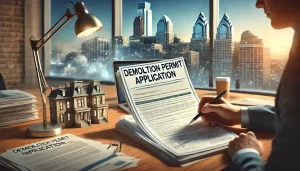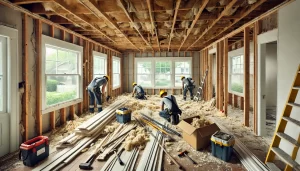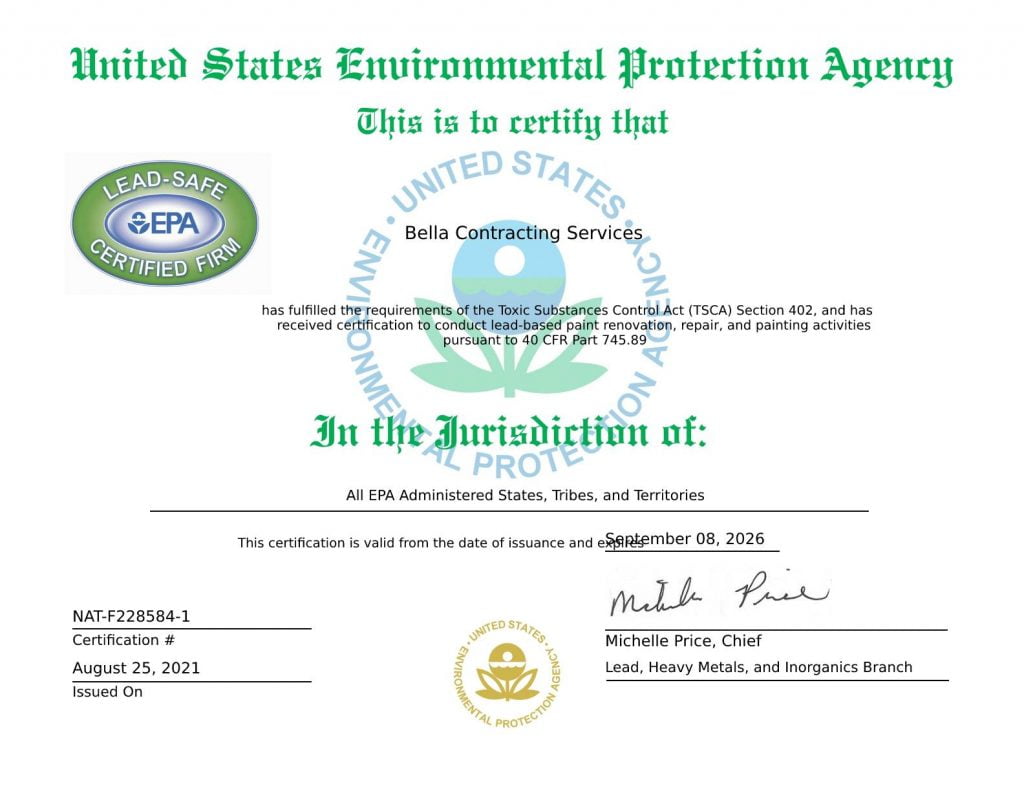When preparing for a building demolition project in New Jersey, properly disconnecting all utilities is one of the most crucial early steps a contractor must take. Failure to fully shut off and disconnect all electric, gas, water, sewer and other utility lines feeding the site ahead of time can lead to significant issues once demolition work begins. For both safety and compliance reasons, New Jersey contractors like Bella Contracting must follow proper utility disconnection protocols prior to any demolition job.
Identifying all Relevant Utilities
The first phase of utility disconnection is identifying all services that need to be shut off and capped. Typical utilities found at New Jersey demolition sites include:
- Electric power – Disconnect from the utility pole and cap wires.
- Natural gas – Contact the gas company to shut off and cap the line.
- Water – Shut off the main valve and cap the water service line.
- Sewer – Cap sewer lateral line exiting building.
- Telecommunications – Phone, cable, and internet lines should be disconnected.
- Security systems – Alarm and camera systems need to be removed.
- Irrigation systems – Any landscape sprinkler system piping must be capped.
Thoroughly walking through the building and checking all service entrances, the basement, and the perimeter of the site helps locate all utilities to be disconnected. Referencing any blueprints or planning documents can also assist with identification.
Notifying Utility Companies
Once all utilities have been identified, the various utility companies servicing gas, electric, water, sewer, telecom and other services must be contacted to schedule disconnections. This should be done well in advance of the demolition date, as some shut-offs may take several days to over a week to schedule.
Common utility providers in New Jersey include PSEG, New Jersey Natural Gas, Aqua America and various telecom companies. The demolition contractor should call each provider for specific requirements and timelines for utility disconnections. Any fees required are usually the responsibility of the demolition contractor or property owner.
Obtaining Necessary Permits
Most municipalities in New Jersey require permits for disconnecting some utilities, particularly water and sewer lines. The contractor should submit permit applications to the local building department or utility authority. Depending on the jurisdiction, approval may take a few days to a few weeks. No utility lines should be disconnected without proper permits.
Hiring Qualified Professionals
While the demolition contractor can perform some utility disconnects, hiring licensed plumbers or electricians is often advisable to handle the shutdown of major utilities like natural gas lines. The demo company should verify credentials and licenses before allowing any subcontractors to perform this highly specialized work. Safety is paramount when dealing with hazardous utilities.
Creating a Disconnection Schedule
To coordinate various utility shutdowns and the start of demolition, the contractor must create a project schedule outlining the order and timeline for utility disconnections. Electric and gas are often disconnected first, followed by water/sewer lines. Telecom lines stay active until the last few days before demolition. Allowing sufficient time ensures each utility can be safely disconnected before demolition crews mobilize on site.
Using Lockout Tagout Procedures
Once gases and fluids have been removed from utility lines, the open pipes and wires must be physically disconnected and capped off using locks, plugs or plastic inserts. Lockout devices prevent utilities from accidentally being re-energized. Tagout labels like “Danger—Do Not Energize” should also be placed.
Verifying Completion of Disconnections
Before demolition work starts, the contractor and crew should walk through the property to visually confirm all utilities have been properly locked out and disconnected. Tug tests should be done on caps and plugs to ensure they are secure. Creating a disconnection checklist is recommended to verify all steps were completed. Thorough documentation protects the contractor in the event any issues arise.
Reconnecting Shared Utilities
For buildings with shared utility lines that will remain active after demolition, the contractor must take care to reconnect any supply lines impacting neighboring properties. This avoids disrupting other clients. Check permits to see if reconnection work requires approval.
Conclusion
By properly identifying, disconnecting and capping all electric, gas, water and other utility lines well in advance of demolition, contractors like Bella Contracting can avoid disruptions, surprises and safety issues when the heavy work begins. Following the recommendations outlined here for coordinating with utilities, obtaining permits, hiring qualified pros and verifying disconnections helps ensure the demolition itself goes smoothly from start to finish.










